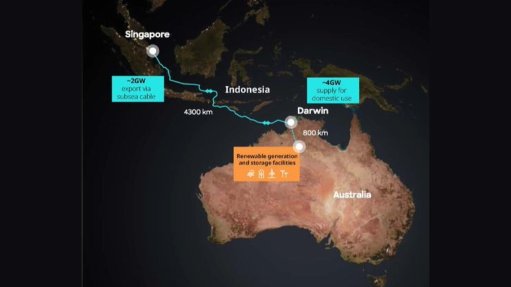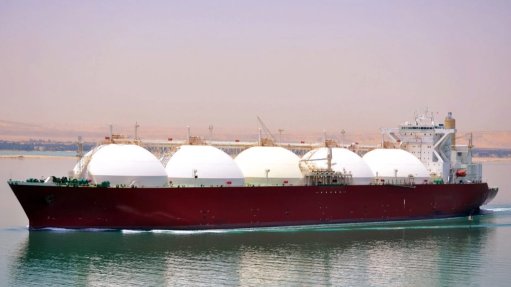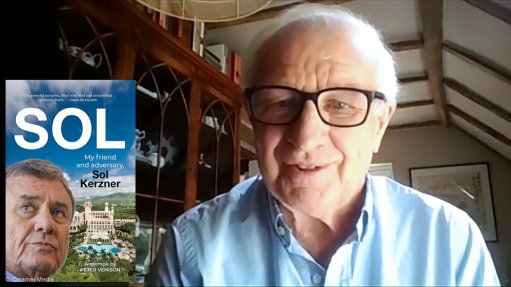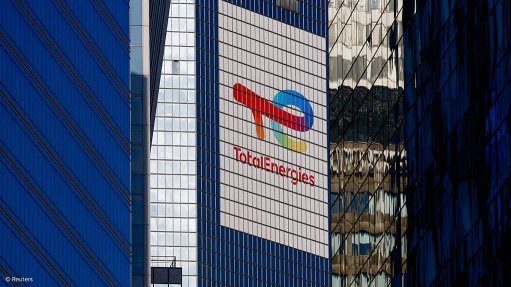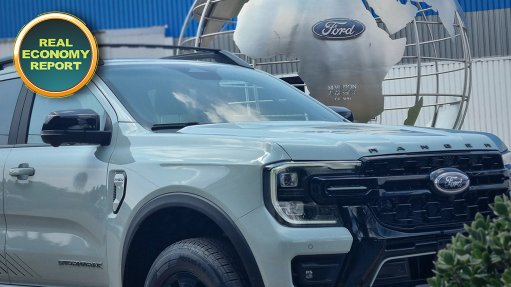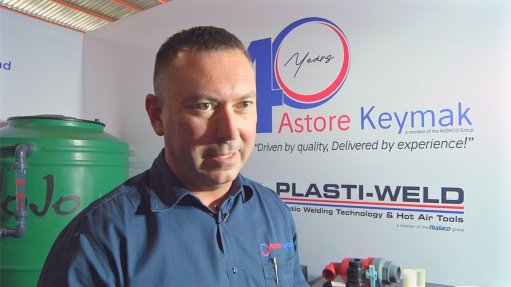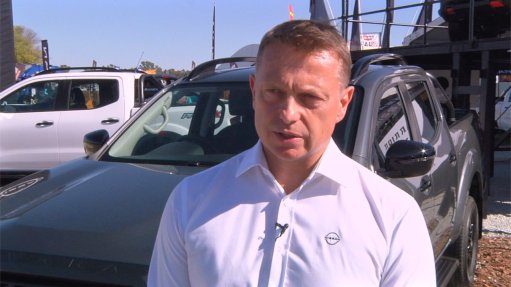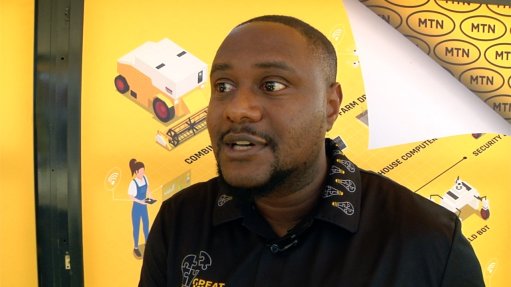Four questions to determine if your IPP is the perfect match
This article has been supplied and will be available for a limited time only on this website.
By SolarAfrica CEO David McDonald
As businesses across South Africa explore alternative energy solutions, electricity wheeling has emerged as a promising option – offering new opportunities but also presenting challenges in selecting the right independent power producer (IPP).
One of the main reasons for this growing interest in wheeling – which allows IPPs to generate power and sell it directly to businesses – is that it eliminates the need for on-site solar installations.
“On-site solar is limited by available roof or land space, restricting how much power a business can generate, says David McDonald, CEO of SolarAfrica. Energy-intensive industries, such as mining, manufacturing or agriculture, often require far more power than what an on-site system can provide. Wheeling allows businesses to buy power from distant renewable plants and use it at multiple sites, even if they are in different regions.”
Yet with an increasing number of wheeling proposals landing on business owners’ desks, it can be difficult to know what to look for in an energy partner. And while price may be the deciding factor for many, it should not be the only consideration.
McDonald shares four important questions businesses should consider before signing with an IPP.
1. Will the price I sign today be the price I pay when power starts?
The biggest motivation for businesses to explore wheeling is cost reduction, but not all pricing models offer the same level of certainty.
McDonald emphasises the importance of price transparency. “A trustworthy IPP will be upfront about costs, guaranteeing that the price agreed upon stays the same from signing to the first day of power delivery. Businesses should read the contract carefully to check for hidden price increases, so they can be sure of the long-term savings they expect.”
Beyond the contract, businesses must consider how project timelines impact pricing. An IPP’s proposed rate is tied to where they are in the development process. If construction is delayed, rising interest rates, labour costs and import taxes on items such as solar panels could push up tariffs. This raises a critical question: could an IPP have an incentive to delay the project to justify higher charges when it finally comes online?
The vital safeguard is the Commercial Operation Date (COD) – the moment the plant starts generating power. If the COD isn’t firm, or if delays aren’t addressed in the contract, businesses could face unforeseen costs. A well-structured agreement should ensure the IPP is accountable, with clear provisions on what happens if the COD is missed. Choosing an IPP with a realistic timeline and protections against price fluctuations is essential for a stable and cost-effective energy partnership.
2. How far is the project in the wheeling process?
Wheeling isn’t a simple, quick setup – an IPP must clear multiple regulatory and development milestones before delivering power. Recent changes in grid allocation now prioritise projects that are fully prepared rather than those that applied first. This means only projects that have secured approvals and demonstrated progress can access the grid.
McDonald advises businesses to assess an IPP’s development stage before signing an agreement. “If construction hasn’t begun, the project could still be two to three years away from delivering power. Choosing an IPP that is further along in the process reduces delays and ensures access to affordable energy sooner.”
But construction progress alone isn’t enough. Another indicator of readiness is how far the IPP is in securing off-takers – businesses that will buy the power. This is critical for reaching financial close, as both Eskom and investors require proof of demand before a project moves forward. Businesses should ask what percentage of the plant’s total energy supply is allocated to them. If an IPP has only signed off-takers for a small portion of its total capacity, it likely hasn’t reached financial close, and further delays could follow.
“Ensuring an IPP has a balanced and well-structured off-take plan reduces risk and improves the chances of a smooth project rollout,” says McDonald.
3. Is the IPP able to cater to my business’s evolving needs?
Businesses’ energy needs change over time, and an IPP should offer the flexibility to adapt. Some solar farms operate on a one-to-one model, supplying all their power to a single business. Others, like SolarAfrica, take a one-to-many approach, distributing energy to multiple businesses under different contract terms.
“Companies should ask whether their IPP allows them to scale up energy supply as they grow, adjust agreements if their needs change, or sell unused power to other businesses to avoid unnecessary costs,” says McDonald.
Another important question is whether an IPP can actually deliver more power if a business needs it. A solar-only IPP has natural limitations – solar generation is restricted to daylight hours and peak tariff periods. This is where integration with an energy trader becomes valuable. SolarAfrica, for example, is building a trading business that allows clients to supplement solar with other sources like wind and hydro. Businesses should ask whether their IPP has similar capabilities or if they are restricted to a single energy source.
Contract flexibility is also critical. Many IPPs offer only long-term Virtual Power Purchase Agreements (VPPAs) – typically 10, 15 or 20 years – because their financial models depend on long-term agreements. But some businesses prefer shorter contracts of five years or less. An IPP that works with an energy trader can provide more flexibility, as traders pull from multiple sources and don’t rely on a single solar farm. Businesses should clarify whether an IPP can accommodate both short- and long-term contracts, or if they are locked into extended commitments.
4. Does the IPP have the right people, processes and plans in place?
Wheeling isn’t just about building a solar plant – it’s about ensuring the energy gets delivered reliably, efficiently and with minimal hassle for businesses. That requires an IPP with expertise in engineering, compliance, legal processes and operational management.
“Businesses need to ensure their chosen IPP has the in-house expertise to navigate these requirements effectively,” says McDonald. A strong track record of building large farms is a good start, but it doesn’t guarantee operational success. Running a wheeling project requires ongoing infrastructure management, performance guarantees and a clear system for tracking energy credits to reduce Eskom bills and verify green energy usage.
An essential step in the process is securing environmental authorisation, which is required before Eskom grants approval for a generation plant. Without it, projects can face long delays or even cancellation. Some businesses have signed agreements with IPPs, only to later discover the project wasn’t fully approved. Ensuring the IPP has all necessary permits from the outset prevents costly setbacks.
Beyond approvals, businesses should assess whether an IPP is investing in infrastructure to ensure stable energy delivery. If the grid fails, what safeguards are in place? SolarAfrica, for example, is installing a Main Transmission Substation (MTS) to secure reliable grid access. Businesses should ask whether an IPP is making similar investments to prevent disruptions.
Another critical factor is software and system integration. Wheeling requires tracking, billing and credit allocation – does the IPP provide the necessary tools, or will businesses need to appoint an internal team just to manage administration? A good IPP should make wheeling easier, not create more work.
Finally, businesses should consider contract flexibility. Some IPPs focus solely on mega-users, while others, like SolarAfrica, cater to businesses with multiple facilities, allowing them to spread risk across different sites under one agreement. An IPP should be able to adjust energy distribution based on usage needs without creating additional complexity for the client.
Choosing the right IPP
With wheeling gaining traction as a cost-effective and sustainable energy solution, picking the right IPP is critical. Transparent pricing, project readiness, contract flexibility and regulatory expertise all play a role in securing a reliable energy partnership.
“Businesses should carefully evaluate their options before signing a VPPA. Choosing an IPP with a strong track record, transparent pricing, and the flexibility to accommodate evolving energy demands is key to a smooth and cost-efficient shift to wheeled power," says McDonald.
Comments
Announcements
What's On
Subscribe to improve your user experience...
Option 1 (equivalent of R125 a month):
Receive a weekly copy of Creamer Media's Engineering News & Mining Weekly magazine
(print copy for those in South Africa and e-magazine for those outside of South Africa)
Receive daily email newsletters
Access to full search results
Access archive of magazine back copies
Access to Projects in Progress
Access to ONE Research Report of your choice in PDF format
Option 2 (equivalent of R375 a month):
All benefits from Option 1
PLUS
Access to Creamer Media's Research Channel Africa for ALL Research Reports, in PDF format, on various industrial and mining sectors
including Electricity; Water; Energy Transition; Hydrogen; Roads, Rail and Ports; Coal; Gold; Platinum; Battery Metals; etc.
Already a subscriber?
Forgotten your password?
Receive weekly copy of Creamer Media's Engineering News & Mining Weekly magazine (print copy for those in South Africa and e-magazine for those outside of South Africa)
➕
Recieve daily email newsletters
➕
Access to full search results
➕
Access archive of magazine back copies
➕
Access to Projects in Progress
➕
Access to ONE Research Report of your choice in PDF format
RESEARCH CHANNEL AFRICA
R4500 (equivalent of R375 a month)
SUBSCRIBEAll benefits from Option 1
➕
Access to Creamer Media's Research Channel Africa for ALL Research Reports on various industrial and mining sectors, in PDF format, including on:
Electricity
➕
Water
➕
Energy Transition
➕
Hydrogen
➕
Roads, Rail and Ports
➕
Coal
➕
Gold
➕
Platinum
➕
Battery Metals
➕
etc.
Receive all benefits from Option 1 or Option 2 delivered to numerous people at your company
➕
Multiple User names and Passwords for simultaneous log-ins
➕
Intranet integration access to all in your organisation






